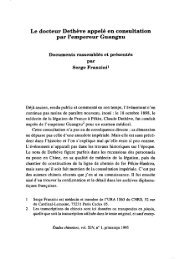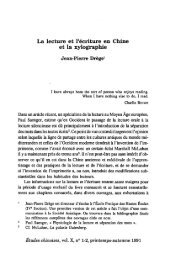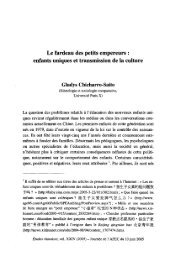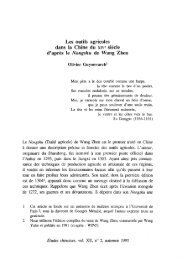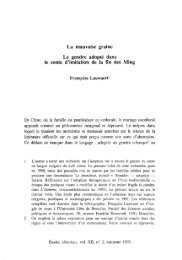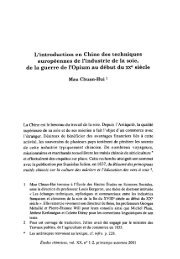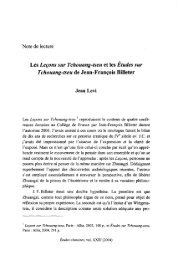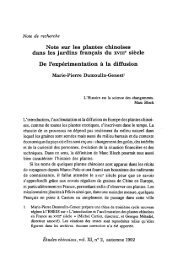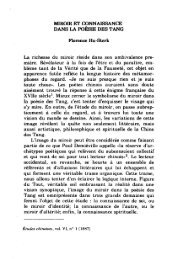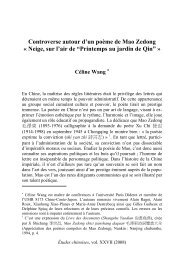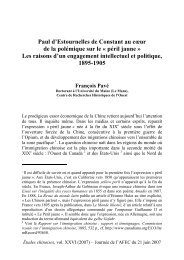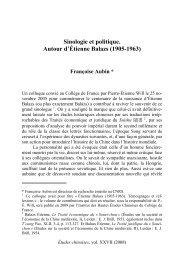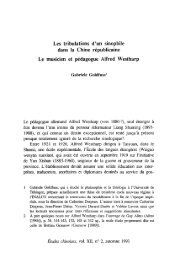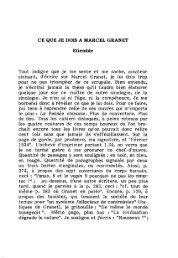You also want an ePaper? Increase the reach of your titles
YUMPU automatically turns print PDFs into web optimized ePapers that Google loves.
Comptes rendus<br />
spécifie situations as women committing suicide after a man made unwanted<br />
propositions, indécent remarks, dirty jokes, or obscène gestures,<br />
whether or not he realized how his act would be taken. Cases related to<br />
thèse substatutes reveal a world in which sexual harassment was an explosive<br />
issue that set family elders and women at odds. Quite a few of the<br />
cases she discusses follow this pattern. A woman living alone, either a<br />
widow or a wife whose husband is away, becomes distraught when a<br />
drunken maie neighbor or relative (perhaps her husband's cousin) finds<br />
her alone and flirts with her or suggests in a joking manner some sort of<br />
tryst. She responds in horror, screaming till neighbors corne. Senior family<br />
members try to calm her down, arguing that for the sake of family face,<br />
she should forgive the offender once they get him to kowtow in apology.<br />
The woman, however, sees this as outrageously inadéquate punishment<br />
and after a few days of fuming commits suicide to prove conclusively that<br />
she was not the type of woman who would in any way compromise her<br />
loyalty to her husband. The man is then charged with the capital crime of<br />
provoking a woman to commit suicide by flirting with her. The woman is<br />
canonized as a chastity martyr and her family is granted money to erect a<br />
commemorative arch.<br />
Thèse cases seem to hâve ail the ambiguities of sexual harassment<br />
cases today. What to the man may hâve been playful, the woman finds<br />
demeaning. Since not ail women find the sarne remark offensive, men<br />
complain that standards are unclear. Theiss shows us that family elders,<br />
including mothers-in-law, often thought the woman was over-reacting, and<br />
judges often considered them oversensitive, a view some modem scholars<br />
such as M. J. Meijer hâve shared. Theiss, however, wants us to understand<br />
the women's own perspective. She quotes one woman after another as<br />
stating that she would hâve no way to be a person if the man who had<br />
trifled with her went unpunished. In Theiss's interprétation, her very<br />
personhood was at stake. "To insuit a woman's chastity was to deny her<br />
humanity" (p. 203).<br />
As Theiss sees it, in punishing the men involved in thèse cases severely,<br />
often by death, the state was siding with women, much more than<br />
the families they had married into. Thus, thèse laws did not so much sup-<br />
484



